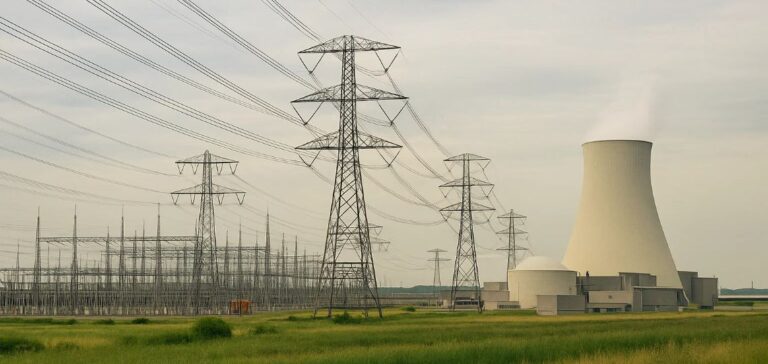The Dutch government has announced a set of budgetary measures totaling €11.4 billion, primarily designed to support the country’s industrial competitiveness amid constrained energy supplies. This initiative is part of recent actions aimed at stabilizing industrial energy costs and maintaining the Netherlands’ economic attractiveness in the face of global competitive pressures. The Dutch industrial sector will notably benefit from a three-year extension of the indirect electricity cost compensation scheme, a measure strongly requested by industries to maintain international competitiveness. Additionally, significant investments are planned to modernize the national electricity grid and expand its capacity, facilitating accommodation of more energy-intensive industries.
Enhanced electrical infrastructure
To support this industrial strategy, the government plans to streamline and accelerate administrative procedures for several major high-voltage electrical infrastructure projects. The national grid operator, TenneT Holding BV, will thus benefit from a simplified regulatory framework, easing the rapid implementation of new strategic grid reinforcement projects. The stated goal is to ensure sufficient capacity for the integration of new industrial facilities and the expansion of existing infrastructure. These actions specifically aim to avoid disruptions similar to those experienced in recent years, caused by occasional grid saturation.
Strategic support for nuclear and hydrogen
In parallel, the Netherlands intends to reactivate its civilian nuclear program, with concrete commitments to extend operations at the Borssele nuclear power plant and prepare for the construction of new plants. A dedicated state agency will soon be established to oversee these new nuclear projects, which will benefit from increased institutional and financial support. Regarding hydrogen, a total budget of €2.76 billion has been specifically allocated to the sector, comprising €2.1 billion to directly support production and €662 million targeted at industrial applications. The objective is to position the country as a significant player in an emerging European market, securing access to this strategic resource for local heavy industries.
Postponement of national carbon tax
The implementation of a national tax on carbon dioxide (CO₂) emissions, initially intended to establish a floor price linked to the European carbon allowance market (European Union Allowances – EUA), will be postponed to provide greater flexibility to industries in managing their costs and investments. This measure was perceived by some industrial sectors as an economic risk factor, especially in an international context marked by intense competition on energy costs. Despite this postponement, the government retains the option to extend this tax beyond its initial 2032 deadline, depending on market developments and economic constraints.
With these new budgetary measures, the Dutch government clearly demonstrates its intention to proactively address the economic challenges related to energy while responding concretely to industrial stakeholders’ expectations. The economic and competitive impacts of these decisions will be closely monitored by the market in the coming months.





















